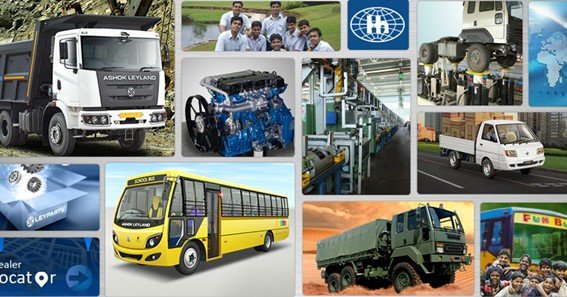Ashok Leyland is a prominent name in the commercial vehicle industry, known for its innovation, strategic planning, and customer-focused approach. The Ashok Leyland business strategy has been pivotal in maintaining its competitive edge and achieving sustained growth in both domestic and international markets. This article explores the company’s key strategies, growth plans, and long-term goals.
Understanding Ashok Leyland Business Strategy
The Ashok Leyland business strategy is centered on creating value through technological innovation, operational efficiency, and sustainability. With a strong focus on market leadership and customer satisfaction, the company has developed strategies to address challenges and leverage opportunities in the dynamic commercial vehicle industry.
Key Elements of Ashok Leyland’s Business Strategy
1. Focus on Innovation
The Ashok Leyland innovation approach emphasizes developing cutting-edge technologies to enhance vehicle performance, fuel efficiency, and safety. Recent advancements include electric and alternate fuel-powered vehicles to align with evolving industry demands.
2. Market Expansion Plans
As part of its Ashok Leyland growth strategy, the company is actively expanding its presence in global markets. By strengthening export capabilities and entering new regions, Ashok Leyland aims to diversify revenue streams and reduce dependency on the domestic market.
3. Sustainability as a Core Focus
The Ashok Leyland sustainability strategy involves adopting eco-friendly practices and offering green mobility solutions. Initiatives like electric buses and vehicles powered by alternative fuels demonstrate the company’s commitment to sustainable growth.
4. Competitive Positioning
The Ashok Leyland competitive strategy focuses on offering superior value through robust product portfolios, cost optimization, and strong after-sales services. This approach has helped the company maintain a significant market share in India.
Strategic Goals of Ashok Leyland
- Market Leadership: Strengthen its position as a leader in the commercial vehicle sector.
- Product Diversification: Expand its portfolio to include advanced vehicles and green mobility solutions.
- Operational Efficiency: Optimize costs while enhancing productivity through digital transformation.
- Customer-Centric Solutions: Deliver tailored solutions to meet diverse customer needs.
Impact of Ashok Leyland’s Business Strategy on Industry
The Ashok Leyland business strategy has set benchmarks in the commercial vehicle industry strategy. Its innovation-led approach, combined with sustainable practices, has inspired competitors to follow suit. Additionally, its customer-first philosophy has strengthened brand loyalty and trust.
In conclusion, Ashok Leyland’s business strategy focuses on innovation, sustainability, and expanding its global footprint to maintain competitive advantage in the automotive industry.
FAQ
1. What is the core focus of Ashok Leyland’s business strategy?
The Ashok Leyland business strategy focuses on innovation, market expansion, and sustainability while maintaining customer-centric operations.
2. How does Ashok Leyland approach market competition?
Ashok Leyland uses a competitive strategy that emphasizes cost-effective production, superior product offerings, and strong after-sales support.
3. What are Ashok Leyland’s strategic goals?
Key Ashok Leyland strategic goals include market leadership, sustainable growth, and operational efficiency.
4. How is Ashok Leyland addressing sustainability?
The Ashok Leyland sustainability strategy includes developing electric vehicles, reducing emissions, and implementing eco-friendly practices.
5. What is Ashok Leyland’s innovation approach?
The Ashok Leyland innovation approach involves leveraging advanced technology to enhance vehicle performance, fuel efficiency, and safety.
Disclaimer: This article is for informational purposes only and should not be taken as financial advice. Always consult a financial advisor for investment decisions.










